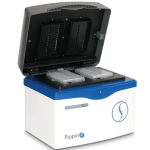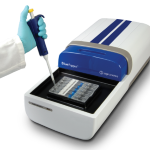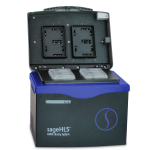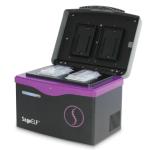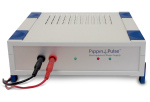A new podcast from Mendelspod takes a look at the state of sequencing in 2018. It’s a lively and interesting discussion about the current and future landscape of genomics between host Theral Timpson and Keith Robison, founder of the Omics! Omics! blog and principal scientist at Warp Drive Bio.
Robison kicked off the conversation remembering his time as a grad student 30 years ago, when he thought sequencing was painfully slow. Fast-forward to today, and he sees modern sequencing tools as “just mind-blowing.” The problem, he told Timpson, is that “the more you get, the more you want.”
Much of the discussion focuses on Illumina, PacBio, and Oxford Nanopore — Robison’s “big three” sequencing platforms today. As the market leader, Illumina remains interesting to users by continuing to expand its lineup and broaden its use in the clinical realm, which might actually outpace the company’s research revenue for the first time this year. Robison thinks the new iSeq system, based on Illumina’s Firefly project, will be very attractive to scientists who can’t afford the capital outlay for a heavier-duty system. “There’s a lot of market at the lower end,” he said. Still, though, he cautioned that even 800-pound gorillas can be displaced. “I think [Illumina] should be worried about Oxford in the long run,” he added.
PacBio got praise for pioneering long-read sequencing. “People had to be convinced that long, error-rich reads could yield really high-quality data with consensus,” Robison said. “PacBio’s done some very nice demonstrations showing these very important, medically relevant sequence variations that you just can’t get to with short reads.” For genome assembly, transcriptomics, and other uses, the company’s platform makes a huge difference — including a sequencing project that he struggled with for two years until long reads saved the day, he said. While PacBio won’t be able to compete with Illumina on throughput, its sequencers are allowing scientists to see things they never could have with short reads.
But when it comes to PacBio, Robison said, “Oxford is nipping at their heels.” He noted that Oxford data is improving rapidly, and recent examples such as the human genome paper include really impressive science. The MHC locus, for instance, is represented in a single contig. Robison said there’s still tremendous variation in the yield users are getting, but that if the PromethIon performs as claimed, it would be a huge advance.
The interview wrapped up with Robison envisioning a world where sequencing is so affordable that grade schools could afford to use it in classrooms, and so simple that scientists could use it as easily as they use a pH meter today. Now that’s a world we’d like to see!
